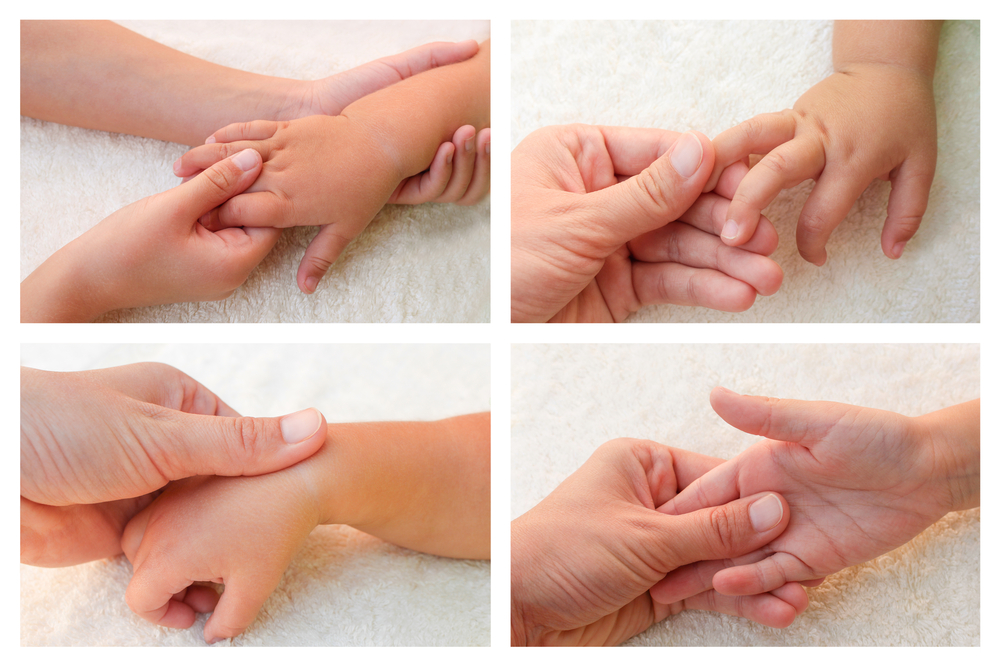Critical thinking development Extra Challenge Worksheets for Ages 7-8
5 filtered results
-
From - To
Enhance your child's critical thinking skills with our "Extra Challenge Worksheets" designed specifically for ages 7-8. These engaging activities promote analytical reasoning and problem-solving, fostering creativity and independent thinking. Each worksheet presents unique challenges that encourage children to explore concepts deeply, honing their ability to assess information and make informed decisions. Suitable for home or classroom use, these worksheets are perfect for enabling children to think outside the box while having fun. Transform learning into an exciting adventure and help your child develop essential skills for a successful future. Explore our collection today and watch your young learner thrive!
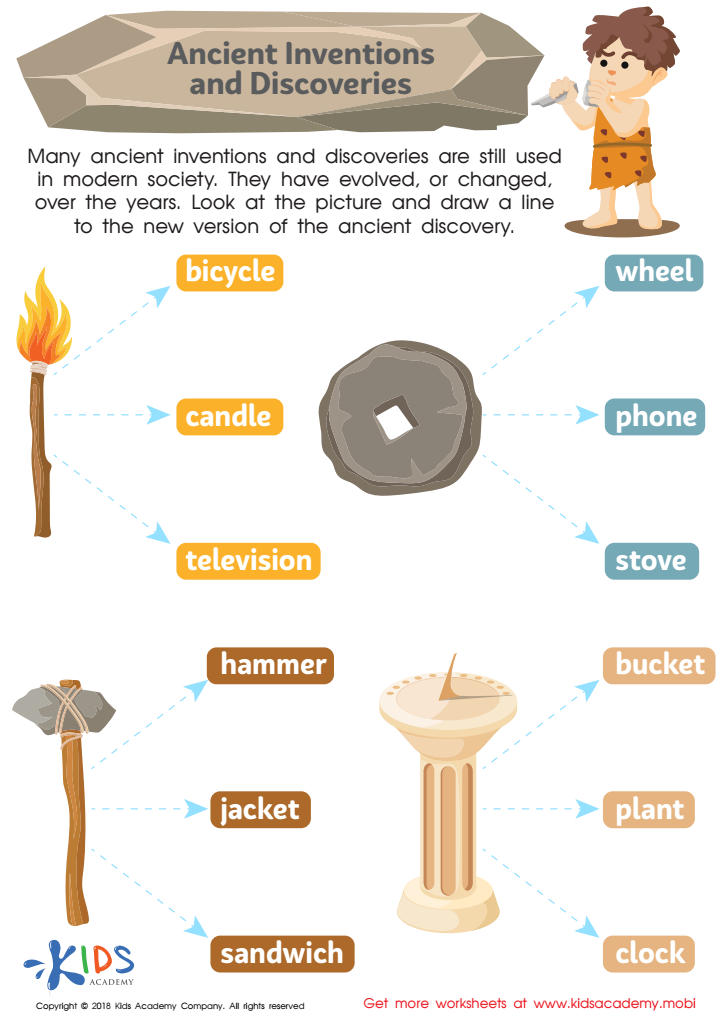

Ancient Inventions and Discoveries Worksheet
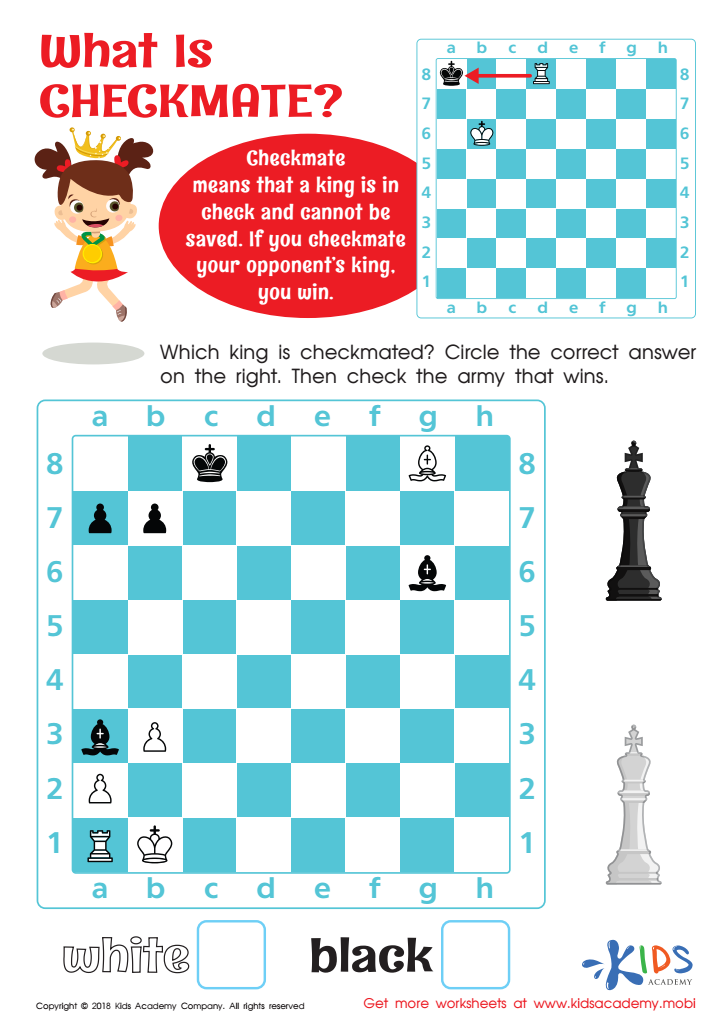

What is Checkmate? Worksheet
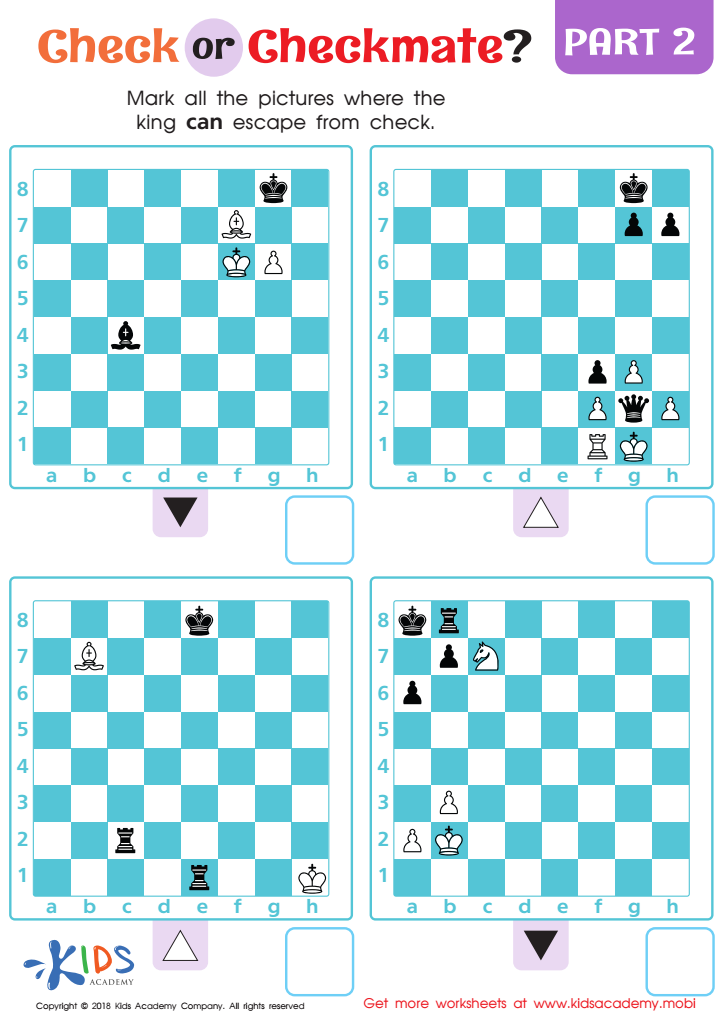

Check or Checkmate: Part 2 Worksheet
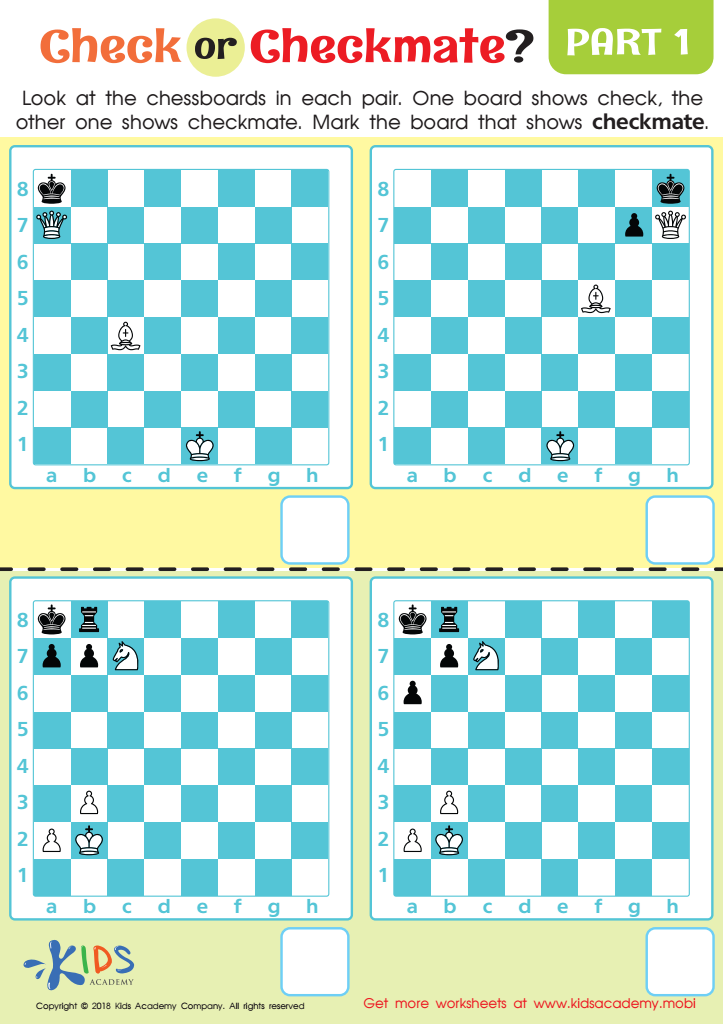

Check or Checkmate: Part 1 Worksheet
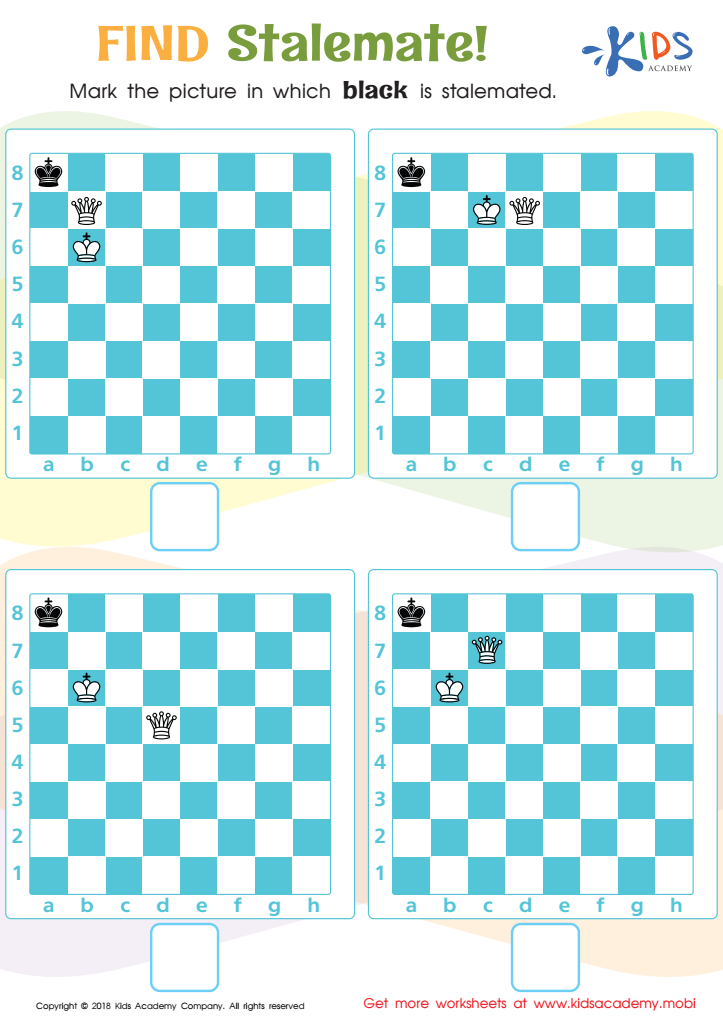

Find Stalemate! Worksheet
Critical thinking development is essential for children aged 7-8, as it lays the foundation for their future academic and life skills. At this age, children are transitioning from simple learning to more complex thinking. By encouraging them to analyze, evaluate, and synthesize information, we help them become independent thinkers who can solve problems effectively.
Parents and teachers should care about fostering critical thinking because it promotes creativity and innovation. As children learn to question commonplace assumptions and explore multiple viewpoints, they develop a mindset that empowers them to tackle challenges in unique ways. This ability to think critically also enables children to make informed decisions, whether in school projects or everyday situations.
Furthermore, a focus on critical thinking helps children improve their communication skills. They learn to express their ideas clearly and support their opinions with evidence, preparing them for future academic success and meaningful conversations.
Promoting critical thinking in this stage prepares children not just for the challenges of school, but for real-world situations, helping them become responsible and engaged members of society. By nurturing these skills now, we equip them to navigate complex issues confidently as they grow, fostering lifelong learning and adaptability.

 Assign to My Students
Assign to My Students








